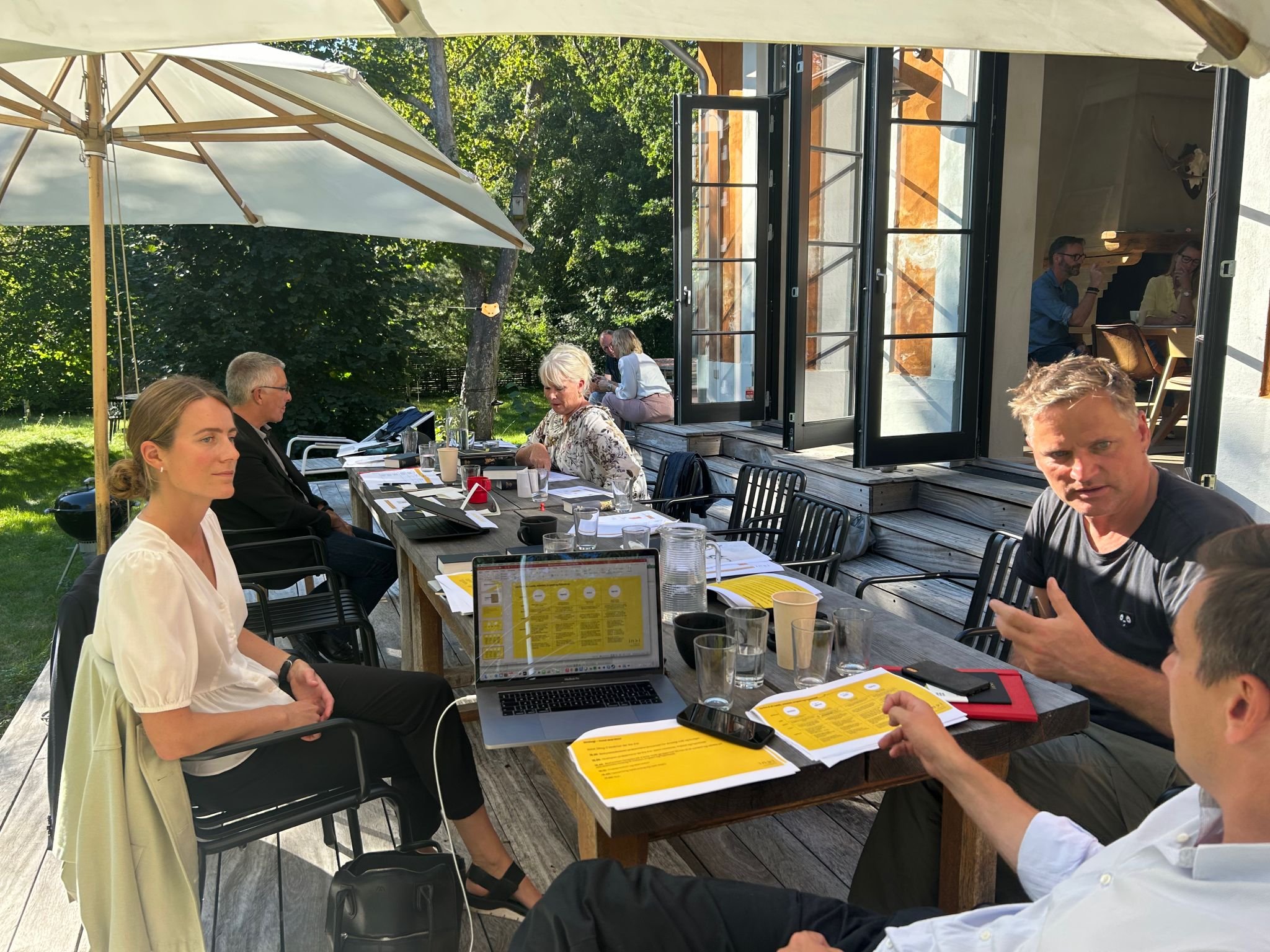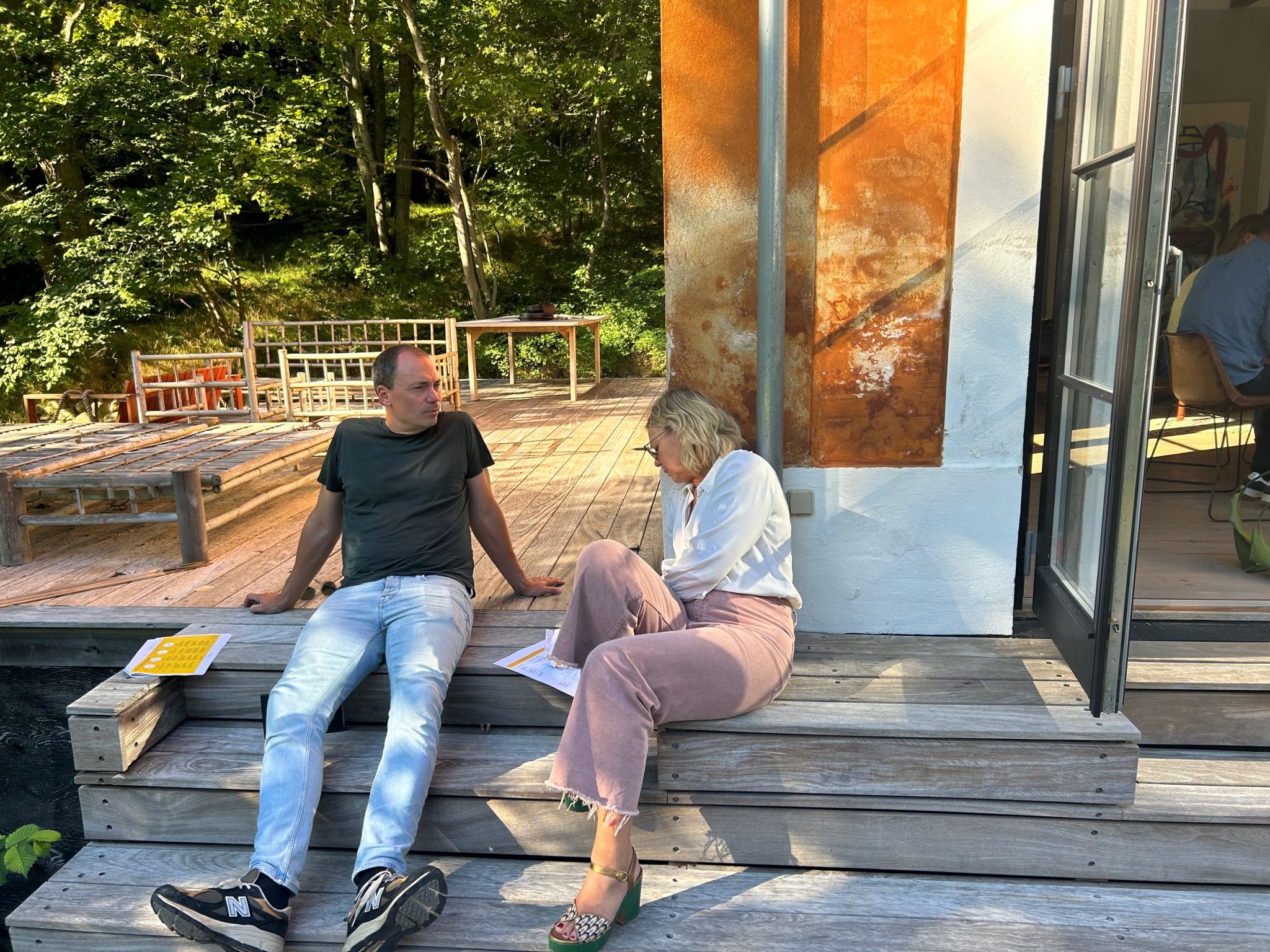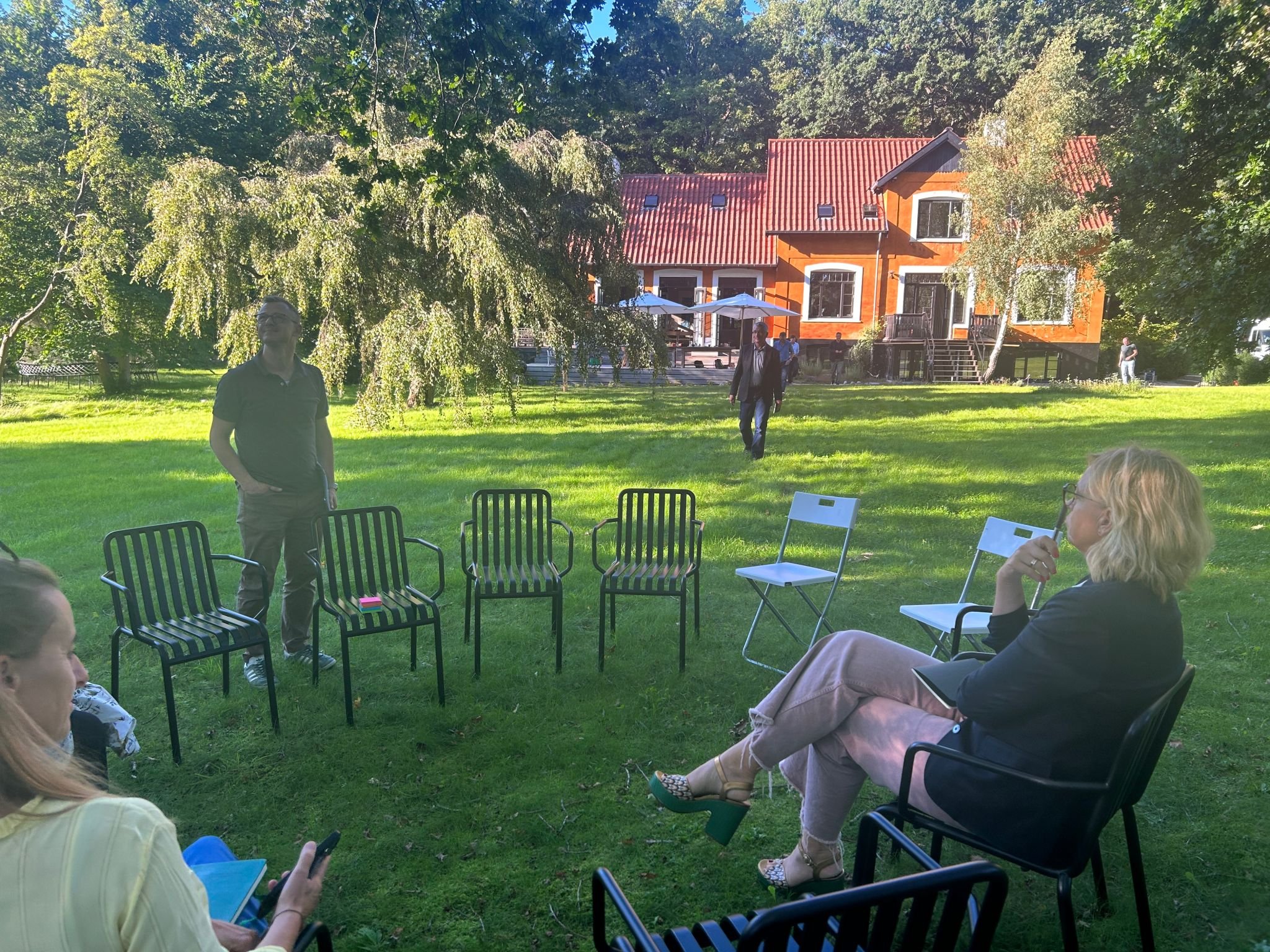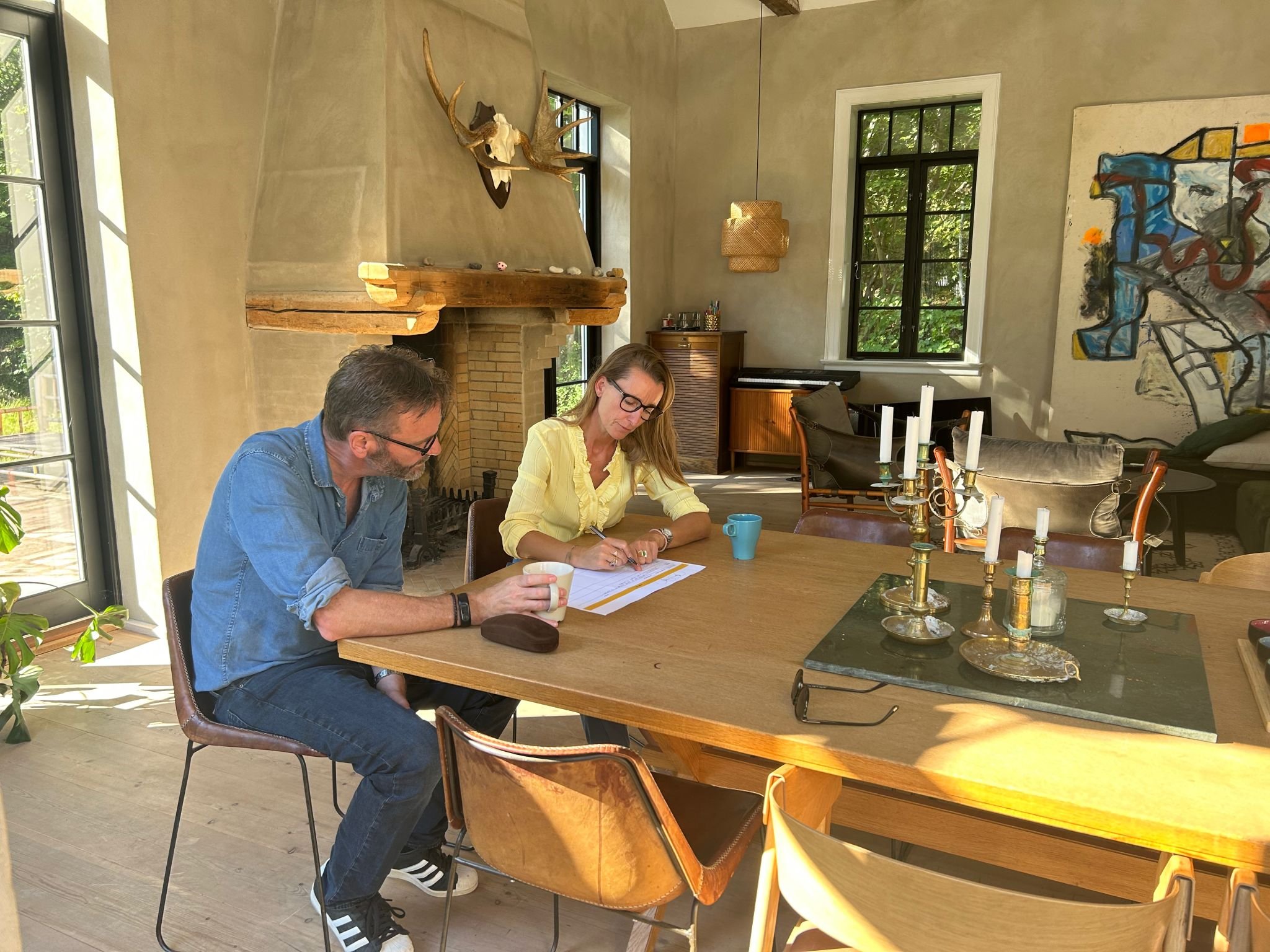Wild problems require wild solutions
It's as if a veil has been lifted from the wheels of politics. Lots of policies are being formulated, but often there is no change. It doesn't have to be that way, according to the initiators of the new think tank, the Institute for Wicked Problems
By Mikkel Vedby Rasmussen, Dean of the University of Copenhagen, Faculty of Social Sciences, Vibe Klarup, Secretary General of Amnesty International Denmark, Tommy Ahlers, entrepreneur, former Minister of Education and Research, Signe Lopdrup, CEO of the Roskilde Festival Group, Kristian Vendelbo, CEO, CEO. KL, Torben Jensen, Deputy Director and Parliamentary Secretary, Danish Parliament, Sine Egede Eskesen, Development Director, Bikubenfonden, Kristian Weise, Deputy Director, Trygfonden.
Tommy Ahlers and Vibe Klarup
If you woke up in Holstebro in 1950, you would look out over a fine market town surrounded by fields. If you woke up in the same place in the year 2000, you would experience significant changes and an explosive development driven by the great social solutions: Expanded schooling, state pension, hospital care, business growth and cultural institutions. The question is, what difference would we see if we fast-forward to 2050? Will we be able to experience similar progress? One fears that the answer is no.
Denmark is a well-functioning society with prosperity and welfare. We are rich, we have clean water in our taps, we have heating in our radiators. We have access to healthcare, education and infrastructure. We have this because the political system has managed to solve the challenges that have faced us since the Second World War through reforms. Of course, there is much we could do better, but we have gone a long way towards solving what you could call society's tame problems - they are not easy problems, they are the societal problems that we can identify, define and formulate concrete solutions to.
But it's as if a veil has been drawn over the political machinery. We formulate lots of policy, but often there is no change. It's a realization that more and more people - politicians, civil society actors, researchers - are coming to. Nina Smith's Reform Commission was set up because our approach to reform is no longer working as it did in the last century. In the book The Entrepreneurial State, you'll find a series of startling calls from leading officials, politicians, journalists and researchers: We want too much in too little time, we focus too much on debate and too little on implementation. The system is set up in such a way that the political rewards are reaped when the vision is launched and not when the results are evaluated.
It seems that the Danes have come to the same realization: According to a new survey, the majority of Danes do not believe that our society will be better in 10 years than it is today. The reforms that politicians have attempted in recent years have not impressed the Danes. Therefore, we need to rethink our democratic framework to address today's wild problems. It is crucial for the trust in democracy as a form of government that we are able to deliver on the challenges we face and the promises we make to each other.
Are politicians to blame? Not necessarily. It's more about the fact that some of the problems we face have changed character. We've gone from tame problems to wild problems. Wild problems are cross-border and intractable, not easy to define and cannot be solved simply by erecting a building or raising a benefit. How do we improve public health? How do we get more hands in the labor market, boost productivity and help the socially vulnerable? How do we boost learning in primary and lower secondary schools, tackle youth unhappiness and tame the climate and biodiversity crises? These are some of the wild problems facing us today.
We come from the worlds of research, politics, foundations, business, culture and civil society. From each of our vantage points, we see problems with the way we currently try to deal with wild problems. Tax rates are raised and lowered, benefits, rules and rights are introduced. If that doesn't help, assistance is sought from yet another commission whose focus is not on implementation and evaluation, but too often on expressing urgent political action.
We are faced with the paradox of modern democracy. Society's problems are getting wilder, but the solutions are getting tamer. It doesn't have to be that way. Perhaps Denmark should be a pioneer in finding new ways to tackle these wild problems. Why not, really? With our strong, collaborative democracy, we are well placed to succeed in tackling the wild problems. But it requires something different from us. We need to rethink the ways in which we create social change.
We don't look at each wild problem in the same way, but we agree that there is a need for a new player in the political landscape. An actor that can bring multiple perspectives together when we make policy and reforms. A player that is not bound by ideology, commercial interests and bureaucratic battles. A player that collects and shares the best examples of alternative ways of shaping policy and harvests experiences from home and abroad. A player that dares to devise and test new approaches to the wild problems we face.
Today, we have such a player. We have joined forces to establish a think tank called INVI - Institute for Wild Problems, headed by Sigge Winther Nielsen. As a board, it is with both pride and great expectations that we present the new player in the political landscape that will create the framework for vision, knowledge and persistence to become key elements in our approach to wild problems. It may feel safer to continue as before, and it is not an easy task that INVI is set up to do. It takes time to build new alliances and to devise new political methods that take into account the world practitioners live in with procurement rules, municipal powers and collective agreements. It's actually extremely difficult - but if it had been easy, it would have been done already.
The article has been published in Børsen






